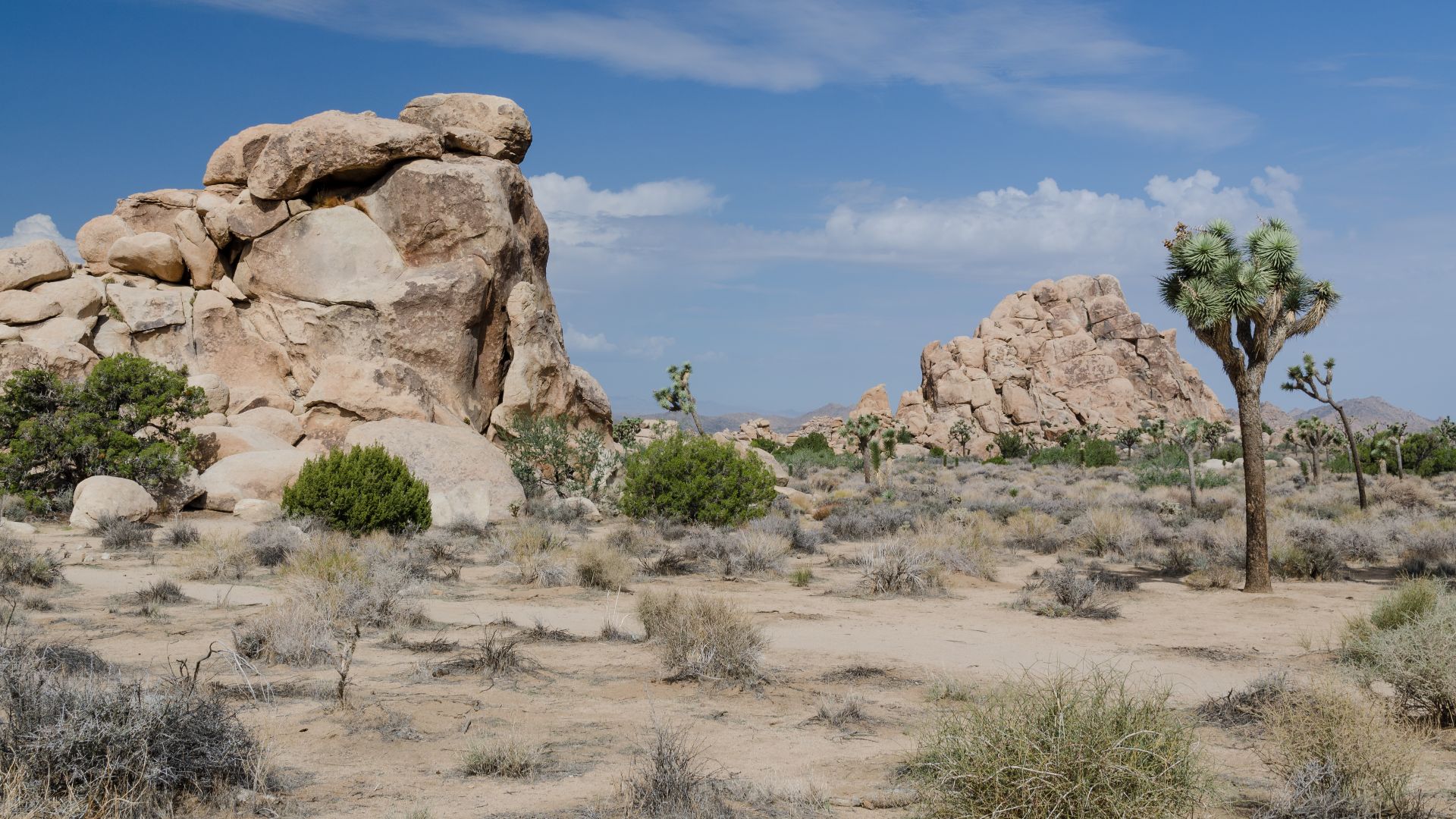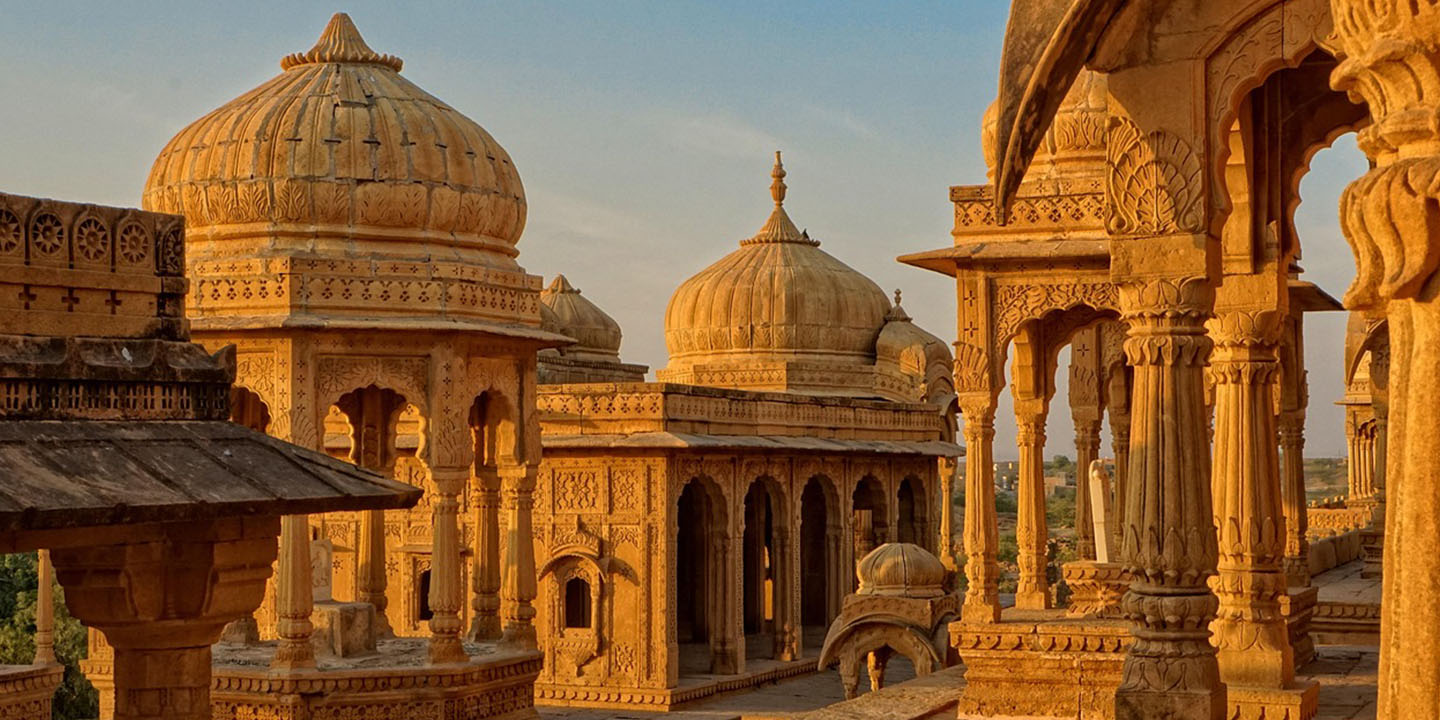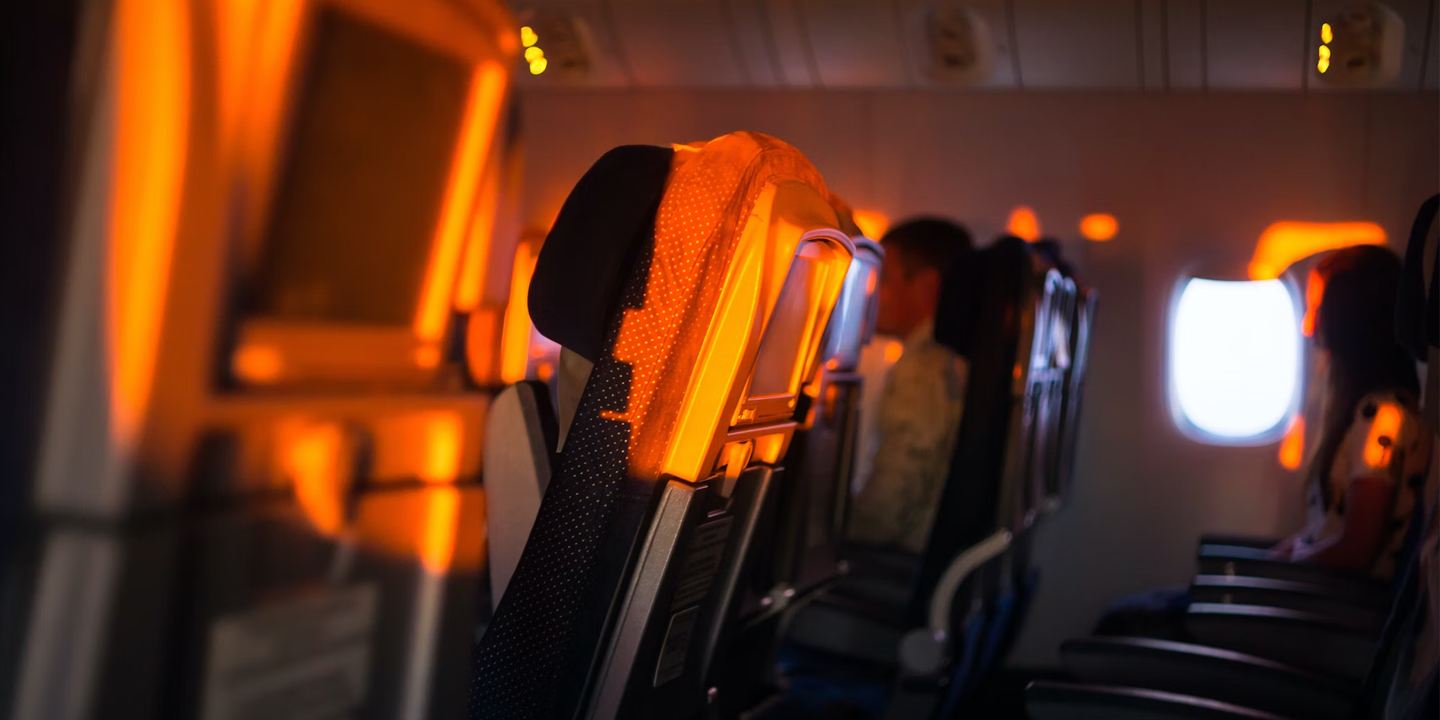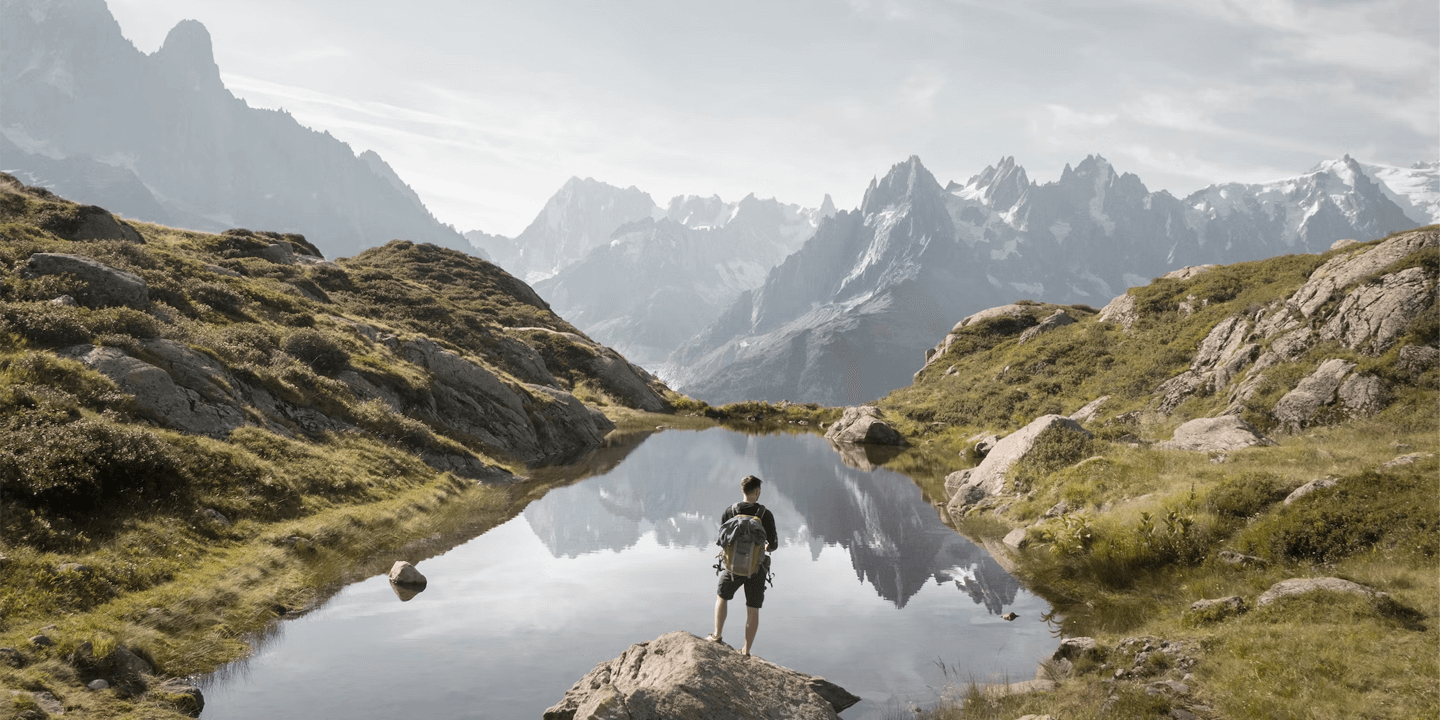Solitude Never Looked This Good
There’s a certain kind of freedom that comes with camping alone. Schedules and small talk are wiped out, and it’s just you and the wild. People looking to reset, clear their heads, or simply enjoy peace and quiet turn to solo camping. And yes, the U.S. is packed with incredible places for it. Ahead, we’ve rounded up 20 of the best solo camping spots across the country to help you plan your next escape.
1. Glacier National Park, Montana
Glacier offers over 700 miles of trails, many of which are ideal for solo backcountry hiking and camping. Home to more than 130 named lakes, the park requires permits for backcountry trips, ensuring low foot traffic and a safer solo experience.
 Jeff P from Berkeley, CA, USA on Wikimedia
Jeff P from Berkeley, CA, USA on Wikimedia
2. Joshua Tree National Park, California
With more than 790,000 acres of desert terrain, this park provides endless space for solitude. Joshua Tree, a certified Dark Sky Park, is also perfect for stargazing while camping alone. The landscape features surreal rock formations and alien-like Joshua trees.
3. Shenandoah National Park, Virginia
Here’s one of the best places on the East Coast for fall foliage camping. It includes over 500 miles of trails, including a 101-mile stretch of the Appalachian Trail. Over 200,000 acres of protected wilderness allow for quiet, immersive solo experiences.
4. Olympic National Park, Washington
Olympic contains three distinct ecosystems—coastline, rainforest, and alpine—ideal for varied solo adventures. Permits limit the number of backcountry campers and keep your experience serene. Sol Duc Hot Springs stands as a great reward after a solo trek here.
 Jason Pratt from Pittsburgh, PA (FishSpeaker) on Wikimedia
Jason Pratt from Pittsburgh, PA (FishSpeaker) on Wikimedia
5. Big Bend National Park, Texas
One of the lower 48’s most remote national parks, it spans over 800,000 acres. Bordering Mexico along the Rio Grande, visitors get unique river camping and solitude. There’s little to no light pollution, and this makes it perfect for Milky Way photos.
6. Denali National Park, Alaska
The park allows dispersed camping almost anywhere in its six million acres. Solo hikers can explore tundra and mountain zones with little human contact. There’s only one road through the park, and it’s 92 miles long.
 Denali National Park and Preserve on Wikimedia
Denali National Park and Preserve on Wikimedia
7. Sawtooth National Forest, Idaho
The Sawtooth Wilderness includes over 40 maintained trails for solo hikers. It’s known for more than 300 high-alpine lakes surrounded by dramatic peaks. Here, you might have entire lakes like Goat Lake all to yourself, and no permits are required for solo backcountry camping.
8. Grand Teton National Park, Wyoming
Dedicated solo backcountry camping zones with established bear safety systems await you here. This park’s dramatic granite peaks and alpine lakes are known for quiet beauty, and sunrise over Jenny Lake is a must-see moment.
9. White Mountain National Forest, New Hampshire
More than 1,200 miles of non-motorized trails crisscross this vast forest, and solo campers can easily find dispersed campsites near scenic lookouts. The Appalachian Trail runs through this area and provides an opportunity for long-haul solitude.
 Jiaqian AirplaneFan on Wikimedia
Jiaqian AirplaneFan on Wikimedia
10. Pisgah National Forest, North Carolina
Pisgah spans over 500,000 acres of remote hardwood forest with hundreds of trails. You can camp throughout most of the forest without a permit. Waterfalls like Looking Glass and Rainbow Falls make scenic camp destinations.
 Jeff Gunn from Atlanta, USA on Wikimedia
Jeff Gunn from Atlanta, USA on Wikimedia
11. Lassen Volcanic National Park, California
This is one of the few places with all four types of volcanoes. Boiling mud pots and steaming fumaroles make this a unique solo destination. Also, backcountry camping is available near hydrothermal areas like Bumpass Hell.
12. Boundary Waters Canoe Area Wilderness, Minnesota
Here, over 1,100 lakes are linked by canoe routes and remote campsites. A permit quota limits daily entries and ensures solitude for paddlers and campers. Wolves and loons serenade you at night across glassy water.
 R27182818 at English Wikipedia (Original text: Reid Priedhorsky (R27182818)) on Wikimedia
R27182818 at English Wikipedia (Original text: Reid Priedhorsky (R27182818)) on Wikimedia
13. Arches National Park, Utah
The park has over 2,000 natural sandstone arches, offering surreal and peaceful solo exploration. Primitive camping is available at the Devils Garden Campground and in nearby BLM land for solitude seekers. The Fiery Furnace requires a permit or guided entry.
14. Ozark National Forest, Arkansas
Ozark offers over 1.2 million acres of forest, trails, and dispersed camping opportunities. Stretching 165 miles, the Ozark Highlands Trail is ideal for extended solo treks. You can explore caves like Blanchard Springs Caverns on your own.
 Ozark Drones ozarkdrones on Wikimedia
Ozark Drones ozarkdrones on Wikimedia
15. Cape Lookout National Seashore, North Carolina
Accessible only by boat, this barrier island provides dispersed camping along 56 miles of shoreline. It is a designated National Seashore with limited visitors and no crowds. Wild horses roam nearby Shackleford Banks, and you can camp just steps from a historic lighthouse.
16. Redwood National And State Parks, California
These parks contain the tallest trees on Earth and offer secluded backcountry sites among the redwoods. They span over 139,000 acres of protected forest and coastline. Fern Canyon, used in Jurassic Park, is a lush solo side-trip.
 Carol M. Highsmith on Wikimedia
Carol M. Highsmith on Wikimedia
17. Mount Rogers National Recreation Area, Virginia
Here, you find the highest peak in Virginia and over 500 miles of trails. The Appalachian Trail crosses through and provides long stretches for solitude. Wild ponies roam freely in Grayson Highlands, and you can hike through alpine meadows.
18. Hoh Rainforest, Washington
The Hoh is one of the only temperate rainforests in the U.S. It receives up to 14 feet of annual rainfall, and the 17.3-mile Hoh River Trail leads solo campers deep into mossy silence. Trees are so densely covered in moss that they appear otherworldly.
19. Great Sand Dunes National Park, Colorado
North America’s tallest sand dunes rise up to 750 feet here, and dispersed camping is allowed in designated backcountry dune zones. You can hike barefoot across the dunes under a full moon, and sandboarding is a thrilling solo activity available on-site.
 Lionello DelPiccolo liodp on Wikimedia
Lionello DelPiccolo liodp on Wikimedia
20. Isle Royale National Park, Michigan
Accessible only by boat or seaplane, this remote island park is perfect for undisturbed solo adventures. It has over 165 miles of wilderness trails and designated campsites. Moose and wolves live undisturbed, providing rare wildlife encounters.



















